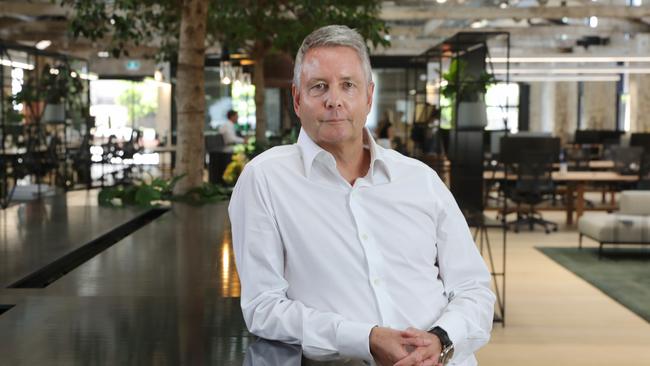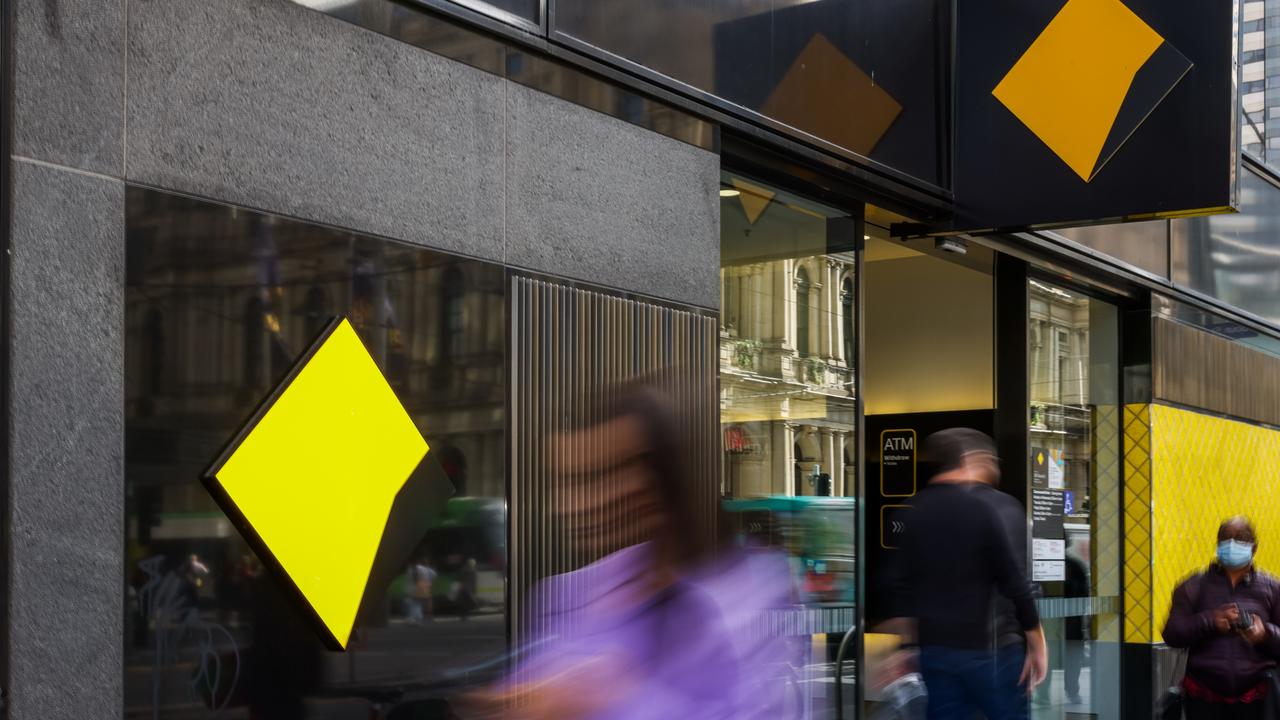Goodman Group faces strike as proxy houses turn against incentive plan
The developer is switching from sheds to data centres but investors question whether executives, including billionaire founder Greg Goodman, are being sufficiently stretched.

Business
Don't miss out on the headlines from Business. Followed categories will be added to My News.
Industrial property powerhouse the Goodman Group faces the prospect of a strike at its annual meeting despite investors embracing its push into the high-returning data centre industry.
The company, run by billionaire Greg Goodman, is riding the sector’s global boom and has delivered double-digit earnings growth for an extended period on the back of the switch to e-commerce.
But top proxy houses have criticised the group’s executive pay practices, which have made its founder one of the highest paid chief executives on the ASX and put senior executives ahead of many rival property chief executives. Mr Goodman was paid a relatively low base of $1.47m but the long-term incentive scheme took his package to $14.97m in the past financial year.
Proxy advisers are concerned that the targets set for executives under incentive schemes are not demanding enough as they are too close to the rapid growth that the market analysts are already predicting.
Proxy adviser ISS called for a vote against the company’s remuneration report, even as it acknowledged that Goodman had improved its practices.
“Despite strong and consistent improvement in the company’s financial performance and shareholder returns, corporate governance concerns are raised for excessive bonuses relative to local market and industry peers, particularly in light of a reported fatality in fiscal 2024,” ISS said, referring to a death on a project in China.
It highlighted concerns about the CEO’s long-term incentive opportunity and total remuneration being excessive relative to its Australia market cap and industry peers.
Goodman Group disclosed that the expense associated with the long-term incentive plan for fiscal 2024 was $501.4m, which was excluded from calculation of operating profit. ISS said this incentive remains excessive where the CEO’s fiscal 2024 maximum opportunity and total remuneration was calculated as multiples of the median of the company’s ASX peers of 5.7 times and 2.6 times.
Glass Lewis Research also recommended against the company’s remuneration report on the basis it had insufficiently challenging hurdles. It also opposed equity grants to Mr Goodman and select senior executives on the same basis.
“This year, analyst consensus growth in earning per security has increased from prior years and now sit either at the stretch vesting performance level,” Glass Lewis said. “We interpret this as a sign the condition is not sufficiently challenging, and would expect stretch vesting results to occur only when market expectations are beaten.”
The proxy house said it was concerned that earnings per share compound annual growth condition vests fully should analyst forecasts be met. “We interpret this as a sign the condition is not sufficiently challenging, and would expect stretch vesting results to occur only when market expectations are beaten – particularly when absolute quantum values are so high,” it said.
Goodman said in its annual report that its last result had significantly outperformed its original estimates notwithstanding the challenging conditions and market volatility.
“Goodman’s security price has continued to demonstrate a significant premium to underlying net assets and outperformance relative to the peer group indices, attributable to the value creation by employees,” it said.
Originally published as Goodman Group faces strike as proxy houses turn against incentive plan



